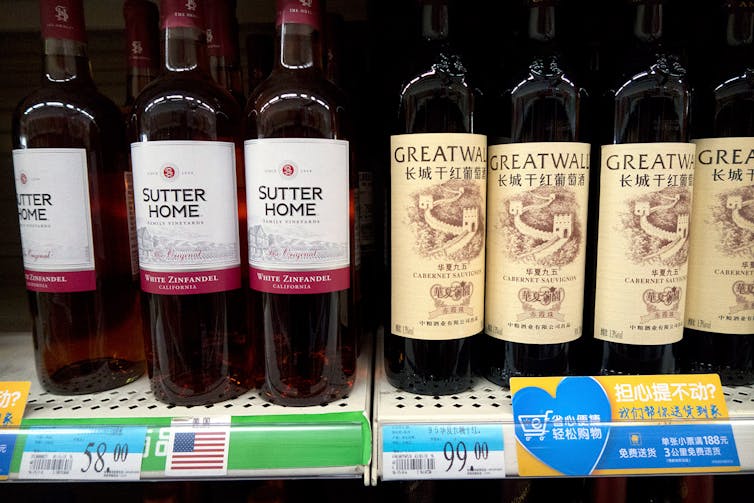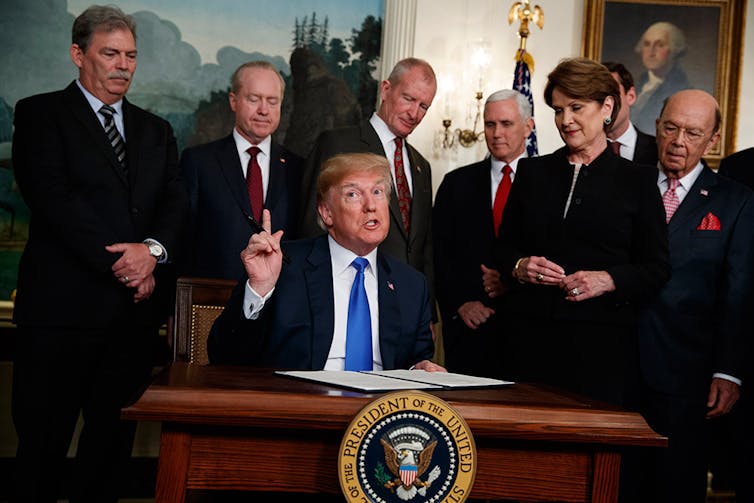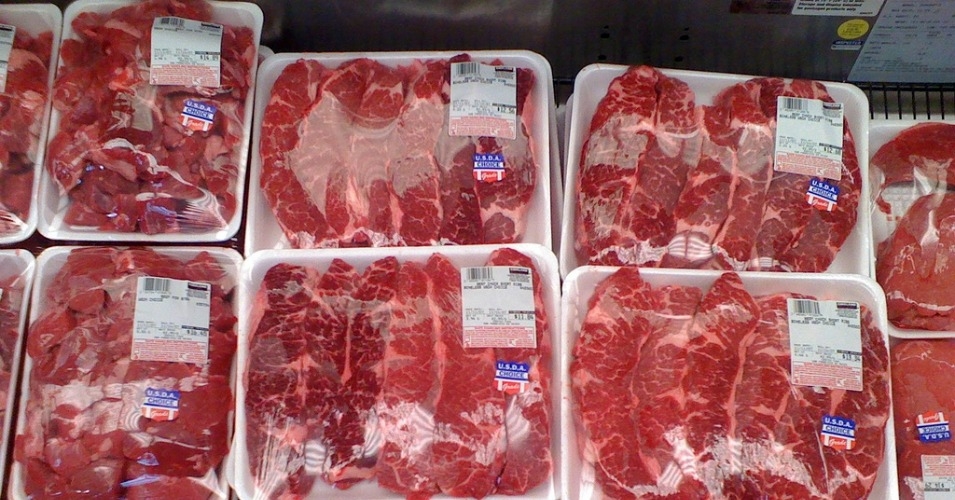
Business such as California winemakers could be hurt by the new tariffs as a result of retaliation. AP Photo/Mark Schiefelbein
William Hauk, University of South Carolina
After spending seven months investigating whether China is engaged in unfair trade practices, the Trump administration announced March 22 that it will impose tariffs on as much as US$60 billion in Chinese imports.
The tariffs are meant to address two problems: intellectual property theft by China and a steep and persistent trade deficit.
As an economist and expert in international trade, I don’t see how the proposed tariffs will resolve either one. In fact, it’s more likely that they will create two new problems by hurting both consumers and businesses.
IP theft and trade deficits
The administration formally justified its tariffs by invoking Section 301 of the Trade Act of 1974, which allows the president to impose tariffs on countries in violation of international trade deals.
In particular, the Trump administration accused China of engaging in intellectual property theft forbidden by World Trade Organization agreements.
Intellectual property theft has been a major complaint of American companies doing business in China for decades. Sometimes this theft occurs through illicit means, such as industrial espionage. It also occurs through legal channels, such as when U.S. companies are forced to form a joint venture with a Chinese business. In other cases, technology transfers are a precondition of doing business in China.
Altogether, the U.S. trade representative estimates that these policies cost U.S. businesses around $50 billion a year.
The other problem that has long irked the president is the significant trade deficit. Since the U.S. normalized trade relations with China in 2000, the deficit ballooned from less than $84 billion to over $375 billion in 2017.
This “China shock” of cheap goods has caused considerable disruption in the U.S. economy. The labor market has been surprisingly slow to adjust, leading affected workers to earn far less money over a lifetime.

President Trump signs a presidential memorandum imposing tariffs and investment restrictions on China. AP Photo/Evan Vucci
The wrong solutions
It remains to be seen, however, whether the tariffs will alleviate either problem.
The administration’s calculation seems to be that China will back down on intellectual property theft if faced with less access to U.S. markets.
But China is less dependent on U.S. trade now than it was a decade ago, making its economy resilient to these sorts of punitive measures. The U.S. accounted for 18.4 percent of Chinese exports in 2016, down from 21 percent in 2006.
The U.S. likely would have better luck resolving this problem at the WTO, which China joined in 2001 and must abide by its rulings. The best part about a WTO ruling is that it would affect all of China’s exports, not just those to the U.S.
Similarly, the trade deficit is unlikely to be resolved through higher tariffs. The primary cause of the persistent trade deficit – $566 billion in 2017 – is an imbalance between savings and investment in the U.S. economy.
The U.S. personal savings rate has fallen steadily since the late 1970s. At the same time, the government has run persistently large budget deficits, both of which have increased the level of borrowing in the U.S. economy.
As a result, foreign investment, particularly from China, has become increasingly critical to financing U.S. economic growth. This is great news in terms of helping Americans buy cheap Chinese goods and the government finance its budget deficit. But all that foreign cash going into the financial market isn’t being used to buy the stuff Americans are producing, like Harley Davidson motorcycles and Iowa corn.
This results in lower exports and a higher trade deficit. Tariffs will not change this reality.
Two new problems
While the full details of the tariffs have yet to be released, it’s clear they’ll cause at least two immediate problems.
One is that U.S. consumers will be hurt. The typical consumer has about $260 in extra purchasing power as a result of trade with China. Those benefits, which disproportionately go toward working-class Americans, will fall due to the U.S. tariffs, as American importers will pass some of their increased costs along to consumers.
Secondly, American companies that export to China will be exposed to retaliation in the form of tariffs on U.S.-made goods. Shortly after Trump’s announcement, China released its own policy statement targeting $3 billion worth of U.S. exports.
Particularly vulnerable to Chinese retaliation are the pork and soybean industries, which are concentrated in the Trump-friendly Midwest. This list could grow if a trade war with China escalates.
A broader concern is that, by acting unilaterally, the Trump administration is undermining the broader system that has facilitated the growth of international trade and adjudicated grievances between countries since World War II.
![]() While far from perfect, organizations such as the WTO have limited the scope of trade wars since the chaos of the 1930s. Failing to uphold these institutions could have major consequences in the future.
While far from perfect, organizations such as the WTO have limited the scope of trade wars since the chaos of the 1930s. Failing to uphold these institutions could have major consequences in the future.
William Hauk, Associate Professor of Economics, University of South Carolina
This article was originally published on The Conversation. Read the original article.


